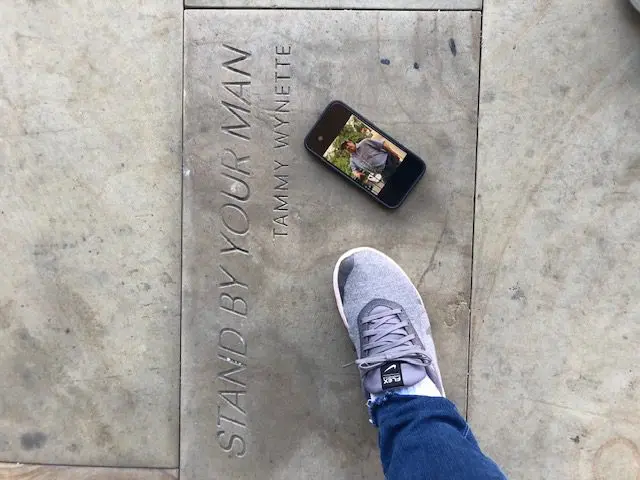What To Cover At A Nose Job Consultation

Are you considering rhinoplasty or a “nose job,” as it’s more commonly known? According to the International Society of Aesthetic Plastic Surgery, rhinoplasty procedures accounted for 877,254 of the total face and head procedures in 2017.
Rhinoplasty can be an excellent option if you have certain breathing problems or are uncomfortable with your nose’s appearance. In a recent study on cosmetic surgery patients, there showed to be an improvement in appearance satisfaction. Some reported a small increase in self-esteem.
When it comes to planning a nose job consultation at a reputable rhinoplasty center, it is important to gather as much information as possible in order to make an informed decision. Read on for common topics covered at your nose job consultation and how you can plan ahead.
Reasons for Rhinoplasty
According to Healthline, patients consider rhinoplasty for a variety of reasons. Some patients may need to improve their breathing or make corrections following an accident, or they are simply unhappy with the appearance of their nose. During a rhinoplasty procedure, the doctor may make changes such as:
- reshaping of your tip
- straightening the bridge of your nose
- changing the angle or size
- narrowing the nose and nostrils
Sometimes, rhinoplasty can have positive indirect effects on other parts of the face. For example, an adjustment in the nose can help balance a weak chin. Rhinoplasty can have an anti-aging effect by improving the tip of the nose that droops as we age.
According to rhinoplasty expert Dr. Daniel G. Becker, rhinoplasty is one of the most popular and effective cosmetic procedures. Patients find that it helps balance facial features and achieve their ideal look. It’s versatile, and it can be customized to your needs.
Type of Anesthesia
You’ll most likely receive general anesthesia. If you’ve never had general anesthesia, you’ll probably have a lot of questions. Don’t be afraid to ask anything at your consultation. WebMD reports that general anesthesia works by interrupting brain and nerve signals. This stops you from feeling pain and remembering what happened during the procedure.
You will need to share all medications you’re taking, including over-the-counter medicines, vitamins, and supplements. You should also tell the doctor if you’re diabetic and/or taking diabetic medications.
The doctor or anesthesiologist may need you to stop taking some medications up to a week before your procedure. You’ll need to fast for some time before the procedure. This prevents food and liquid in your stomach from backing up in your lungs. Your doctor will give you specific instructions at your consultation.
It’s important to be truthful with your doctor and anesthesiologist. Any question they ask is to help them administer the right medication. Anesthesia is safe, but there may be a greater risk of complications if you:
- are overweight
- smoke
- have health problems such as high blood pressure, heart disease, or diabetes
- take aspirin
- have allergies to anesthetic medications
You’ll also need to arrange in advance for transportation because you won’t be able to drive after receiving any type of anesthesia.
The Procedure
During your consultation, the doctor will go over what you can expect during the procedure. What actually happens depends on the type of rhinoplasty you’re getting.
If you’re getting open rhinoplasty, the doctor makes a small incision between the nostrils, under the tip of the nose. He will use tools to alter the cartilage and reshape the structure of your nose. He can also alter the shape and look of your nostrils. Open rhinoplasty is used for major adjustments or reconstruction.
If you’re getting revision rhinoplasty or nasal reconstruction, the doctor may need to collect bone or cartilage from a different part of your body, such as your rib or ear. The doctor does this discreetly, and it doesn’t affect the function of these body parts.
In some cases, you may be better suited for a procedure called liquid rhinoplasty, where the surgeon uses a temporary solution to disguise a minor disfigurement. While this procedure is less invasive than traditional rhinoplasty, you’ll also need to get it repeated periodically.
Tips to Prepare for Your Consultation
There are some things that you, as the patient, can do before your consultation to make sure your process is smooth and you’re getting exactly what you want.
1. Know What You Want
As with any medical procedure, you should do plenty of research ahead of time so that you know what to expect. Look at the before and after photos and use the mirror. You may want to have someone take photos from different angles so you’ll have a clearer picture of what you want.
You should learn about the different types of rhinoplasty so you’ll know which one best suits your needs.
2. Have An Open Mind
Keep in mind that while you are the patient, your surgeon is the expert. He’s done many of these procedures. He may have a suggestion that you never considered, and it could be a different procedure that you had in mind.
3. Write Things Down
During your research, you’ll come up with a lot of questions. Write them down so you won’t forget to ask during your appointment. Come to your consultation with a list of your current medications, prescribed and non-prescribed, known allergies, previous surgeries and/or hospital stays, and medical conditions.
At the consultation, your surgeon will go over all of this information. He’ll also give you health assessments and nasal exams to make sure you’re a good candidate for rhinoplasty.
Questions to Ask The Surgeon
Are you drawing a blank on where to start? The following are suggestions you can use:
- Am I a good candidate for rhinoplasty? How does my medical history affect my candidacy?
- How is the procedure performed?
- What is the recovery period like? How much time should I take off work/school?
- What risks and complications should I be aware of?
- How are complications handled?
- What reasonable results should I expect?
- What will happen on the day of the procedure?
- How long will I have to fast before the procedure? Will I need a special diet?
Remember, you’re responsible for your own health. Make sure you’re well-informed. Your doctor will give you all the information you need and more.









